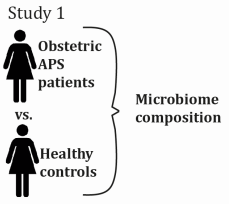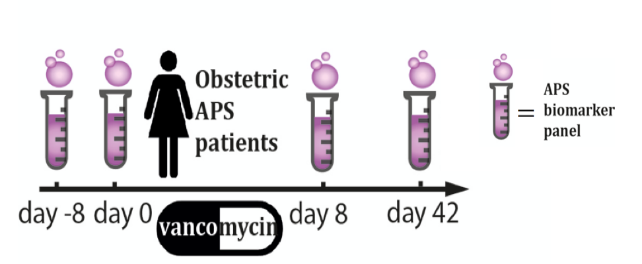of Vascular Medicine, has used the AR&D Grant to conduct research into the etiological role and therapeutic potential of the gut microbiome in human obstetric antiphospholipid syndrome. The study with oral antibiotics showed for the first time in humans
that the gut microbiome affects the disease activity in antiphospholipid syndrome. The finding is supported by earlier work in animal models. Identifying the gut microbe as a pathophysiological factor in this obstetric and thrombotic auto-immune disease creates opportunities for finding new therapeutic targets.
The most serious pregnancy complications can sometimes be a result of the antiphospholipid syndrome (APS). APS is a common autoimmune disease. We do not understand what causes APS. The intestinal microbiome, the ecosystem of bacteria residing in every persons gut, has been recently discovered to contribute to autoimmunity and mouse studies specifically into APS suggest a possible beneficial effect of changing the gut microbiome.
This project investigated whether the gut microbiome indeed has a role in APS in humans, as this may mean that new forms of therapy for APS can be developed in the future directed at the microbiome. The project consisted of two main studies.
In study 1, we compared the bacteria in APS patients and healthy people. We found that APS patients do not have an aberrant pattern of microbiome composition. This means that if there is an effect of the microbiome on the disease, that it is not simply a matter of too many or too few of certain bacteria. Other ways the microbiome could affect the disease are still possible.

Study 2 showed that indeed there is an effect of the microbiome on APS. We treated 15 APS patients with oral antibiotic that changes the gut microbiome, but does not have effects outside the gut. This resulted a changed blood profile of APS “biomarkers”, molecules we can measure in the blood, which we use as a reflection of the disease activity.

This finding supports further research efforts into this newly identified relation between microbiome and APS, since it will hopefully provide opportunities to innovate APS treatment.
